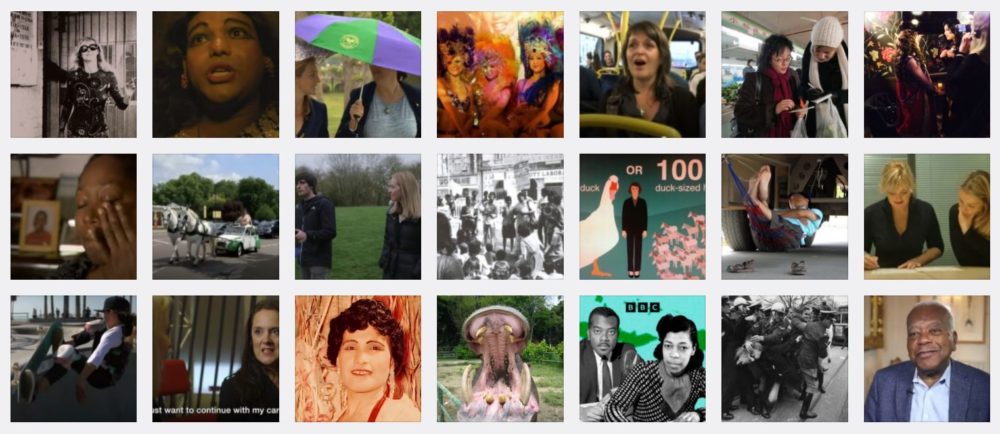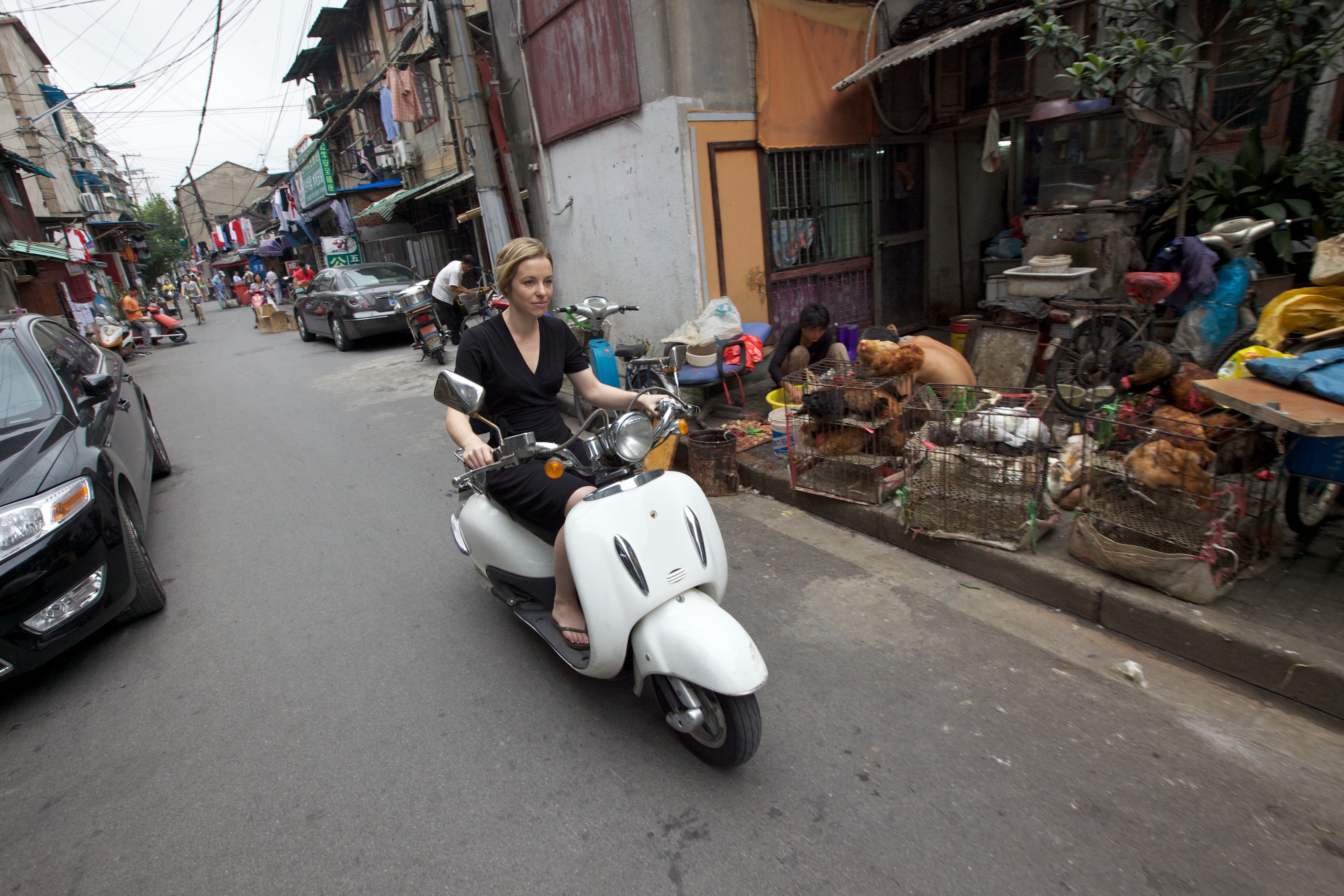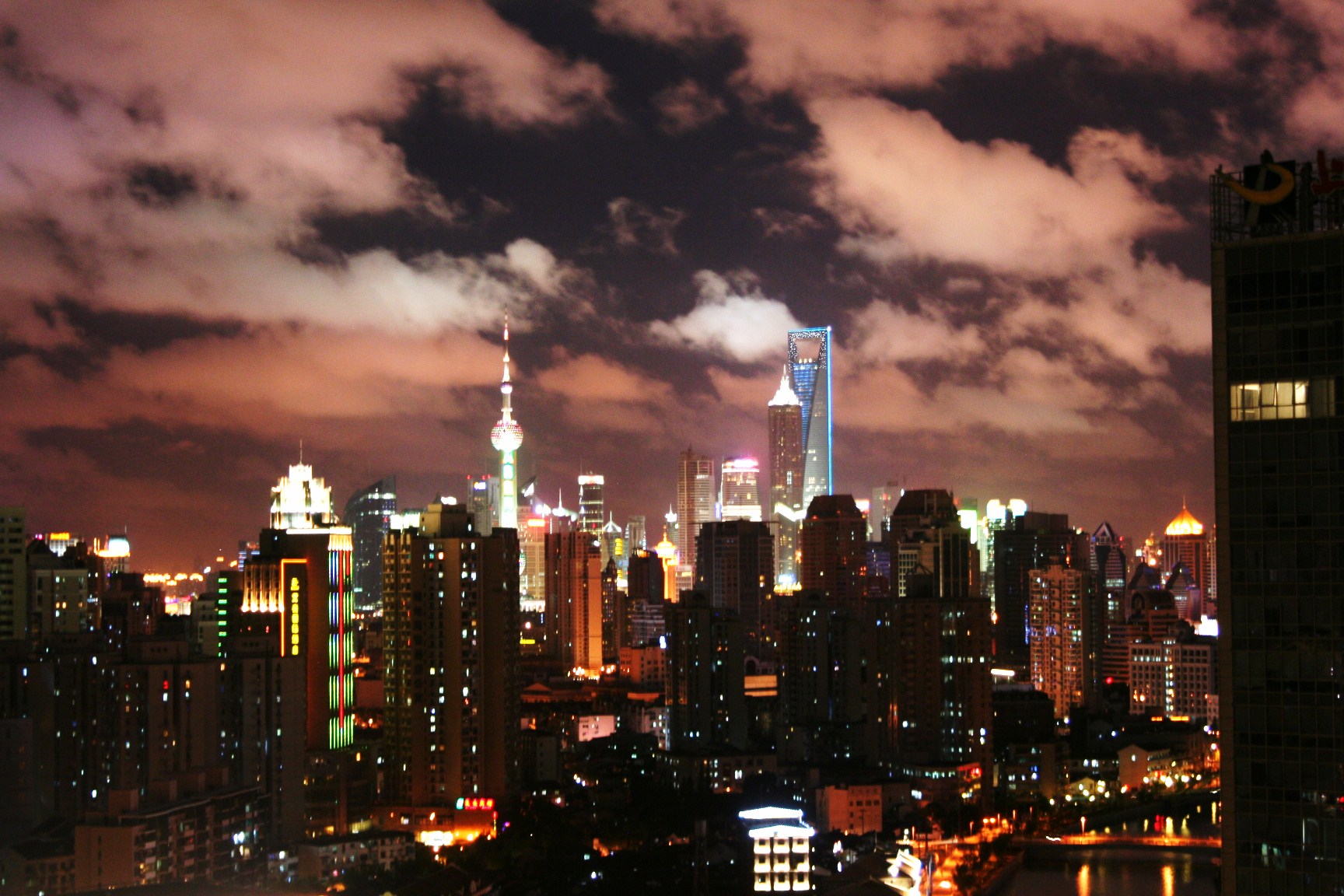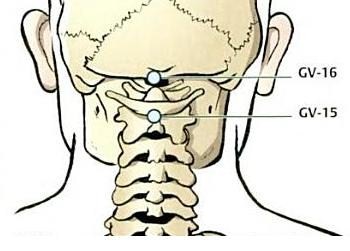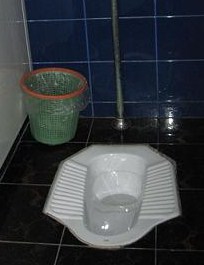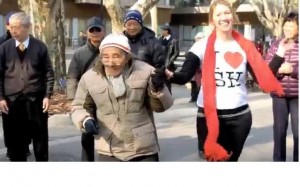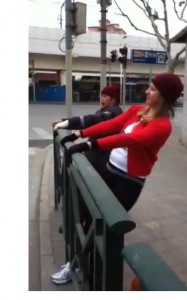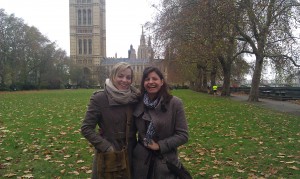特写:BBC 记者体验中国式婚礼

新郎和新娘向新娘父母敬茶鞠躬
我七年前在上海居住的时候就认识了维佳,没想到我今年能有幸参加她的婚礼,还有份成为伴娘团的一员,一同折磨维佳的丈夫-来自英国韦尔斯的约翰.伍德伯里。
在王维佳出嫁当天, 我穿着一袭乳白色的长裙, 站在新娘家中的阳台上,看到三位西装笔挺、外表英俊的男士站在距离阳台一百米的地方。这无疑是一幕非常浪漫的画面。但是不久后就听到像机关枪一样的一阵响声,原来几百个炮仗投向了前来接新娘的新郎和他的伴郎们,作为欢迎他们的到来。而新娘、伴娘和新娘的家人在等待新郎来的时候,就像出战前的战士一样。

在中国的婚宴,新郎和新娘都需要向每一桌的宾客敬酒。
In English:
Had we maimed them? Three smart-looking men in suits had appeared 100m from the balcony where I was standing in a full length cream gown. It was a romantic scene. But moments later hundreds of small explosions had gone off sounding like a machine gun. Big red wheels of poppers suspended on a clothes drier greeted the groom and his best men as they tried to approach the apartment where my friend, the bride Wang Wei Jia 王维佳, us – her bridesmaids (阿姨) and her entire family lay in wait like combatants.
But had we gone too far and hurt them or even killed them, blowing them up with the traditional wedding day fireworks? It was impossible to see anyone outside any more because of all the smoke from the gunpowder. “They have a strange way of treating the wedding party in China” I thought to myself.
A knock at the front door proved the groom had survived but if he was after a warm welcome he had come to the wrong place. The other bridesmaid, Li Yong Jiao 李永姣 leapt to the peep hole and demanded: “Who is it!?”
We knew full well who it was. We had been preparing for his arrival for two hours, but we were going to make him suffer before he could collect his bride. This was my introduction to a Chinese wedding.
I felt privileged to be asked to be maid of honour for my friend Wei Jia whom I met in Shanghai in 2007 when I was working for China Daily.
I didn’t know then that seven years later I would be demanding her boyfriend, John Woodberry from Wales, sing the words of the nursery rhyme Twinkle Twinkle Little Star to the tune of the Chinese national anthem, before I would let him across the threshold to fetch her for their wedding day.
Wei Jia told me to be tough. He had to be put through his paces and made to prove his love, she said.
I had been a bridesmaid three times before at British weddings but I could tell this was going to be unlike anything I had experienced. Testing the groom with press ups, Maths tests, and demands for declarations of love marked the first major difference of what I knew would be an incredible day.
For all the teasing of the beleaguered groom, the love and respect shown to Wei Jia’s parents was awe-inspiring. The mother of the bride has no role in a western wedding ceremony, unlike the bride’s father who is permitted to give his daughter away, escorting her down the aisle. So it was touching to witness the bride and groom bowing and thanking both parents for raising Wei Jia in a tea ceremony. Wei Jia had the chance to formally say goodbye to her mother as she left her old, unmarried life behind. I pitied western mothers who are denied this.
During the ceremony, the symbolic removal of the seed from the lychee in the sweet soup was the first of many reminders through the day of the children expected through the union. Another big difference, I thought. British people are too reserved to say something like “zao sheng gui zi”.
The bride changing dresses five times was another major difference to western weddings. As part of my role I became a doorman – forcing the changing room door shut at the hotel where the wedding took place so that enthusiastic friends and relatives did not barge in and see the bride undressed and then stand chatting to her, delaying proceedings.
I had been told another important task would be to stop the bride and groom drinking too much when they went to each table at the wedding banquet to be toasted by friends and family. I tried to make sure there was more “Gong xi!” than “Gan bei!” but it was a losing battle. And as the bride stormed around each of the 20 or so tables getting merrier and faster, my biggest challenge was keeping up with her to hold the train of her beautiful red and gold embroidered dress. Babies were picked up and kissed, frail, elderly relatives were leant down to and hugged with their shaky hands clutching glasses to clink with the bride and groom’s. Slowly the differences between East and West were evaporating. Two people in love were being celebrated by the people who loved them most.
As I practised the speech I would give later, I looked out of the window of the room in the Ritz Carlton in Shanghai’s financial district of Lujiazui where the bride and groom would sleep. I could see the Oriental Pearl Tower, built in 1994 as a symbol of the new China. Yet glancing over at the bed with its red sheets left covered with eggs, dates and nuts to symbolise fertility, and the characters for double happiness, it was a good reminder that China is taking its traditions into the future. One day, perhaps John and Wei Jia’s future son-in-law will disappear in smoke as he comes to collect his bride, but now when that happens I’ll be able to assure the bridesmaids – “Don’t worry, the groom will survive. In fact it will be the best day of his life”.
